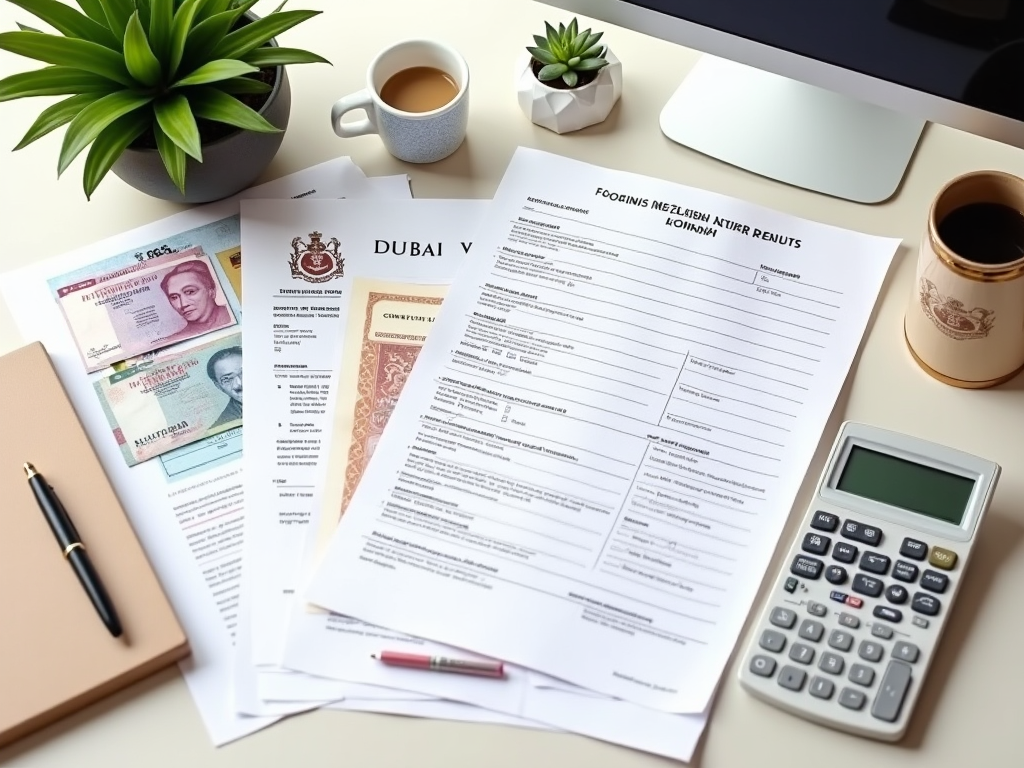Understanding the Costs and Fees Associated with Dubai Residence Visas
To obtain a Dubai resident visa, individuals should be prepared for a range of costs, including application fees, processing charges, and sponsorship demands. The financial requirements vary based on the type of visa, whether it’s employment, family, or investor-related. Navigating these fees is crucial for prospective residents, as it allows for better financial planning and understanding of the overall investment in living in this vibrant city.
The Types of Dubai Residence Visas

Dubai offers various types of residence visas, catering to different needs and circumstances. Each visa type entails specific costs and requirements that are essential for applicants to understand. The primary categories include:
- Employment Visa: This is issued when an individual secures a job in a Dubai company. The employer often bears much of the cost.
- Family Visa: For expatriates wishing to sponsor family members. The sponsor must meet specific salary standards.
- Investor Visa: For those investing in property or business within Dubai, this visa has higher financial implications.
- Student Visa: Issued to individuals enrolled in educational institutions, with additional fees tied to health insurance.
- Retirement Visa: Aimed at retirees, this visa requires proof of financial stability.
Understanding which visa best aligns with your situation is the first step, as fees will vary significantly across these categories.
Cost Breakdown of Dubai Residence Visas

The cost of obtaining a Dubai residence visa encompasses several elements, which can accumulate quickly. Here’s a breakdown of the typical fees associated with the various types of residence visas:
- Application fee: Ranges from AED 100 to AED 500 depending on the visa type.
- Issuance fee: Generally AED 1,200-2,000 for employment and investor visas.
- Medical examination: Required for all visa applicants, costs around AED 300.
- Emirates ID: A mandatory identification card, costing about AED 100.
- Annual renewal fees: Varies from AED 600 to AED 3,000, based on the visa type and duration.
It is crucial to budget for these fees, as they can add up quickly, and planning for both initial and renewal costs is wise for long-term residents.
While visa fees are a significant aspect of living in Dubai, there are additional costs that candidates should factor into their budget. These costs often vary based on individual circumstances or changes in policy and may include:
- Health insurance: Compulsory for residents, can range from AED 500 to AED 4,000 depending on the coverage.
- Housing costs: Rental prices in Dubai can vary greatly depending on the location and type of accommodation.
- Utilities and services: Monthly electricity, water, and internet costs.
- Transportation: Understanding local transport options or vehicle ownership costs.
- Miscellaneous fees: Fees for translation services, attestations, or legal advice.
Being aware of these additional expenses provides a more comprehensive understanding of the financial commitment involved in relocating to Dubai.
How to Minimize Costs
Managing costs associated with residence visas in Dubai requires strategic planning. Here are several strategies that can help prospective residents minimize their expenses:
- Employer sponsorship: If you’re securing employment, see if your employer covers any visa-related fees.
- Group applications: Families applying together can sometimes benefit from reduced fees or shared medical examination costs.
- Compare health insurance: Shop around for the best health insurance policy that meets requirements but doesn’t break the bank.
- Timing applications: Monitor any changes to visa fees or policies to apply at the most cost-effective times.
- Utilize online resources: Make use of official government websites and forums for the most updated information.
By implementing these cost-saving measures, individuals can considerably reduce their financial burden while securing their visa and relocating to Dubai.
Conclusion
Understanding the various costs and fees associated with Dubai residence visas is essential for anyone considering a move to this dynamic city. From the different types of visas available to the intricate breakdown of fees and additional costs, thorough research and planning are key to successful relocation. With strategic financial planning and an awareness of available resources, applicants can navigate the process more efficiently, making their transition to life in Dubai smoother and less financially daunting.
Frequently Asked Questions
1. What is the average cost of a Dubai residence visa?
The average cost can range from AED 1,200 to AED 3,000 depending on the type of visa and duration of stay.
2. Are there any hidden fees in the residence visa process?
Yes, additional costs may include medical examinations, Emirates ID fees, and health insurance, which can surprise applicants if not planned for.
3. Can my employer assist with visa costs?
Many employers in Dubai cover most of the visa costs for their employees, especially for employment visas.
4. How often do I need to renew my Dubai residence visa?
Residence visas typically need renewal every two or three years, depending on the specific conditions of the visa issued.
5. What happens if my residence visa is not renewed on time?
Failing to renew your visa on time may result in fines, legal issues, and a potential ban from re-entering the UAE.


